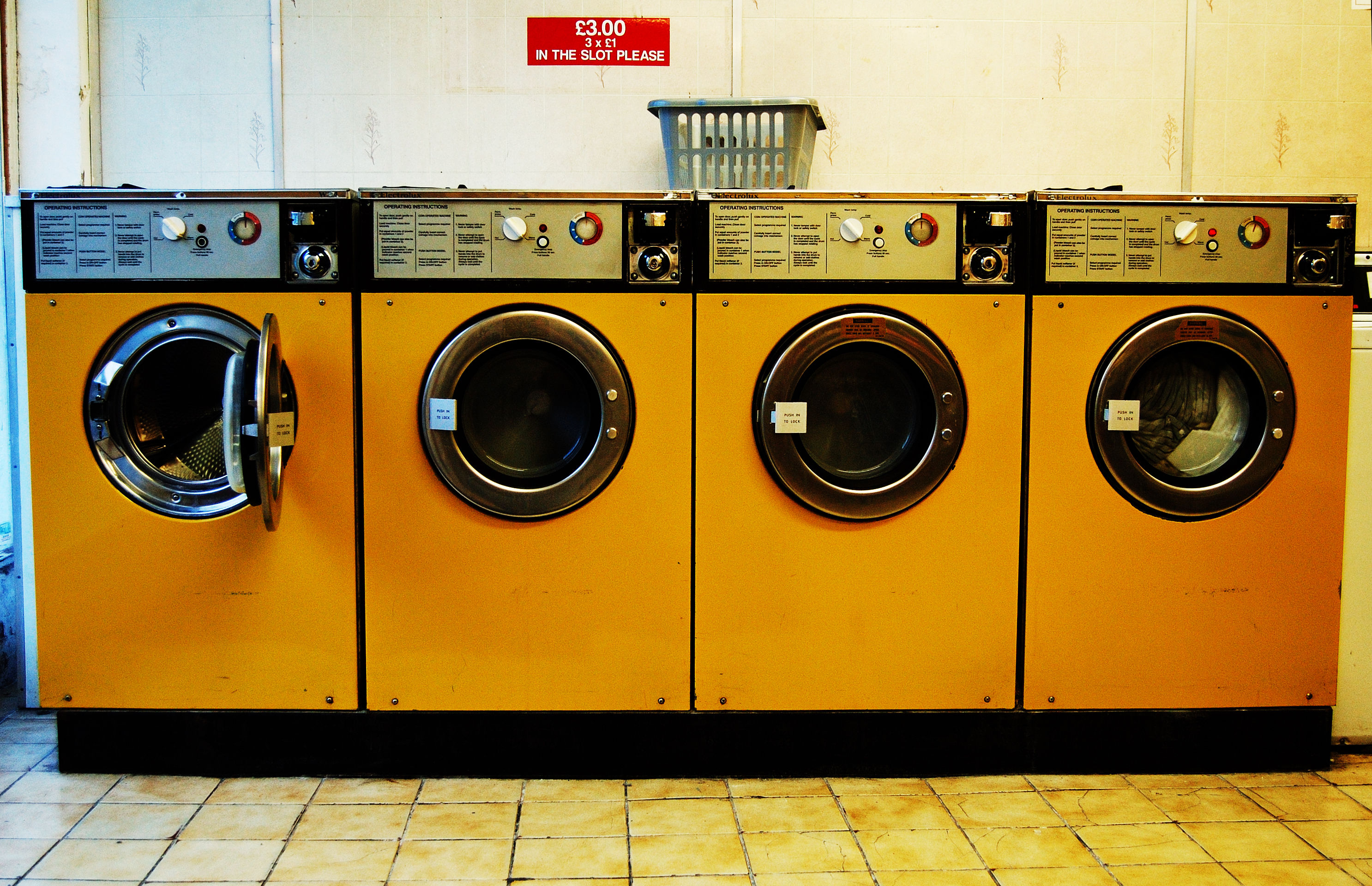Globalisation and Whitelash: Examining ‘My Beautiful Laundrette’
by Niall Walker
21 December 2016

Stephen Frears’ 1985 movie My Beautiful Laundrette is a wonderful piece of political cinema, and its themes of interracial hostility, economic insecurity and fascism make it a film of enhanced relevance today.
The narrative centres on Omar, a young Pakistani living in south London, who runs a laundrette with his secret lover, Johnny, a white fascist played by Daniel Day-Lewis. The laundrette becomes a microcosm of Thatcherism, explored with great levels of nuance. Ambitious Omar begins the film on the dole, but, when placed in charge of a failing family business, his hard work and aspiration bring about an upturn in the business’ fortunes. This success, however, is achieved via several questionable acts that he and Day-Lewis’ character commit: selling drugs, robbing houses and manipulating family members.
Then there’s the question of race. Omar’s achievements come despite his minority ethnic status in 1980s British society, striking a chord with the neoliberal ideal expressed by his uncle, Nasser, who states there’s “no such thing as race in the new enterprise society.” Yet the beating which Johnny, Omar and his Uncle Salim face at the hands of white nationalists suggests otherwise. The reality of Thatcherism, far from heralding the erasure of racial distinctions, was that of escalating racist violence, provoked by increasing economic inequality and symbolic legislation. For instance, the 1981 British Nationality Act enshrined whiteness as a dominant signifier of British identity, while the war in the Falklands proved Thatcher’s willingness to protect white British communities militarily if necessary. Frears’ film depicts hegemonic English identity as violently resistant to the perceived threat of foreign infiltration. Thatcher harnessed this xenophobia to win the 1979 election, and early actions in her premiership acted only to perpetuate it.
In the US, Donald Trump has mobilised a similar sentiment to steer himself into the Oval Office, while on this side of the pond, Ukip defends a distinctly insular form of populism. Liberalism’s goals of internationalism and multiculturalism have been comprehensively rejected, in large part by a demographic constituent thought to be of fading electoral relevance: white men.
Yet the extent to which this whitelash is a response to the economic effects of modern liberalism is made evident in revealing data on global income growth. Since the late 1980s, developing nations – driven by corporate exploitation of cheap labour markets – have seen average incomes markedly increase, along with the global top 1% (the main benefactors of this huge reduction in labour costs) who have seen their already healthy profits skyrocket. This growth has been offset, however, by stagnation and decline for the majority of inhabitants in first-world western countries (those between 75% and 90% on the graph), a trend that has only continued since the financial crash of 2008. The traditional jobs of white working and lower middle class workers in Europe and the US are being sent abroad, while those at the top of society are becoming even wealthier.
Moreover, the moneyed elite is becoming increasingly heterogeneous along lines of gender, race, and sexuality: doors have been opened allowing for the first black president of the US, an openly gay CEO of the world’s most valuable company, and for the twelve female heads of state currently holding office in Europe. Regardless of our political concerns with figures like Obama, Merkel or Cook, these changes pose a threat to a popular nationalist identity that remains influenced by imperialist and conservative-Christian theories of hierarchy. This constituent, mobilised not just by Brexit and Trump, but throughout former colonial powers from Denmark to France to Hungary, is having the authority implied in their identity challenged as their economic conditions worsen. While the manifestations may be more severe, it is precisely the same causes which drive the narrative of My Beautiful Laundrette.
At the climax of Frears’ film, one of the fascists takes a metal bin and hurls it into Omar’s laundrette window. Though they had previously found employment there, it was of a menial nature, presumably low paid, and failed to mitigate their repulsion at working for a Pakistani who, as one of them articulates, “came over here to work for us.” In the voting booth, many on both sides of the Atlantic have chosen to pick up their own metaphorical missiles and throw them in a similar direction: at an economic system which has failed to ensure their security, and a liberal identification of power which no longer looks like them.
Throughout the film, the fascists are positioned on the liminal cusp of the action by cinematographer Oliver Stapleton, particularly in the foreboding scene before their attack, where they stand, armed and waiting, around the laundrette. This is liberalism’s hubris: to have assumed that xenophobic nationalism would forever remain on the fringe. That it has remained – indeed, expanded – in conditions of economic stagnation, is neither surprising nor unprecedented. The answer is not to renounce democracy for having failed us; nor is it to condescendingly sneer at the irony of reacting to economic decline by voting for billionaires. Those losing out in the global rat race must share in the prosperity of their society. If they don’t, future reactions will be more shattering still.